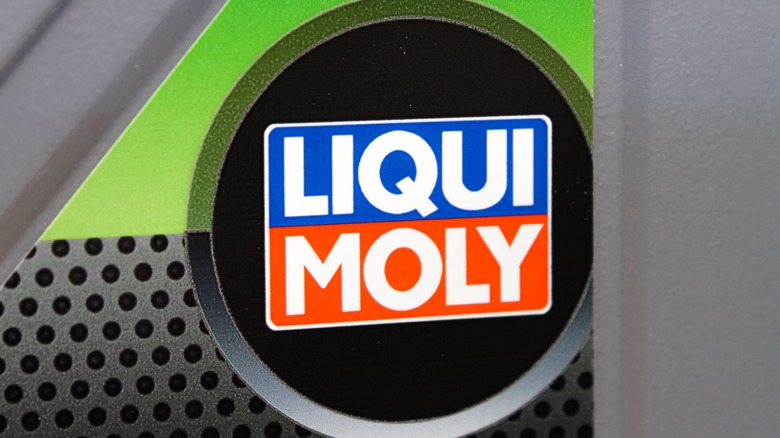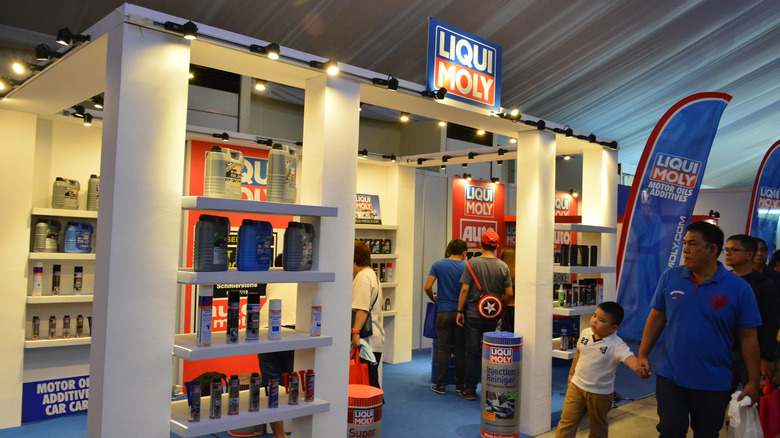
Renovacio/Shutterstock
We may receive a commission on purchases made from links.
If you’re wondering whether Liqui Moly motor oil is any good, the answer is «yes.» If you’re wondering if Liqui Moly motor oil is worth its high price tag, the answer is «maybe.»
This brand comes at a pretty premium price, but it’s a price many are willing to pay. Tellingly, it’s quite popular around the world and the most commonly used motor oil in its home country of Germany. There’s little doubt that Liqui Moly works well, while the question of its price value remains to be answered.
For instance, Liqui Moly falls seventh on our list of the most popular transmission fluid brands ranked worst to best, and it lands in the same No. 7 spot on our list of the most popular diesel oil brands. But that doesn’t mean it’s a bad brand, nor does it mean it’s not worth buying. Plus, when it comes to its regular motor oil products, the company’s bread and butter, it’s a whole different ballgame.
I combed through consumer reviews and professional analyses to get a comprehensive scoop on Liqui Moly motor oil. I’ve used it myself, as well, and was impressed (albeit on a 1996 Toyota Corolla … take it as you will). But because I’m an investigative journalist and not a chemist, I decided to rely on the findings of professional analysts to synthesize a conclusion. In my research, I also found where it’s made, an insight that further supports the consensus that Liqui Moly offers a quality, high-end motor oil that serves its job well. Its signature MoS2 additive helps boost the lubricative performance of the oil. And although the price might be relatively high, that’s the cost of German engineering for you.
Where Liqui Moly motor oil is made: The German standard survives

Walter Eric Sy/Shutterstock
In 1957, a patent for the manufacture of a motor oil additive, molybdenum disulfide (MoS2), was granted to a new company in Ulm, Germany. This liquified disulfide gave the company its name, and it became the signature ingredient in its product. Hence, Liqui Moly was born, during a time when synthetic oils were starting to overtake conventional oil blends in popularity.
A big selling point of Liqui Moly motor oil and its special additive is its ability to keep an engine running for some time should a rapid loss of oil occur (I assume this is simply a consequence of its thorough lubrication). In fact, this property was already known by some WWII pilots who put MoS2 in their oil tanks as a safety measure to mitigate the risk of their oil tanks receiving critical damage. Should the damaged oil tank fail to supply oil to the engine, the MoS2 would help give them enough time to make an emergency landing.
Thus, Liqui Moly started in Ulm, Germany, and it continues its production in the same place to this day. Of course, its facilities have grown in size and scope since then, but almost all the production of Liqui Moly products begins and ends in Ulm. Although it might be cheaper to export the manufacturing overseas, the German-made label seems to be a source of pride for the company. (It’s probably also a big boost to the brand’s image.) As the Managing Director Günter Hiermaier puts it, «We want to be the best, not the cheapest.»
How good is Liqui Moly motor oil? The test results are in
Let’s take a look at what the pros have to say about Liqui Moly oil.
First up is Project Farm. Their review compares the much less expensive Amazon Basics motor oil to Liqui Moly motor oil. Testing cold-flow performance, wear resistance, and heat tolerance, the results were close. Nonetheless, Amazon Basics beat Liqui Moly in cold flow and wear resistance, while Liqui Moly won the heat-tolerance test. This suggests that Amazon Basics offers a better value for the price, at least based on the areas tested.
But for a fuller picture, let’s get scientific. Blackstone Laboratories performs spectroscopy analyses of motor oil. Such tests can reveal an oil’s composition. More importantly, unexpected metals can indicate friction within the engine and, consequently, poor lubrication.
The Blackstone analyses are mostly positive. This first report praises Liqui Moly, pointing out good viscosity and no evidence of unhealthy wear. Another report suggests a high protective performance from Liqui Moly: «Your Range Rover is performing at the top of its class. Metals are much lower than we’d expect.» In other words, Liqui Moly oil lubricated the engine exceptionally well without wearing down the engine.
Based on oil analyses, amateur tests, and customer opinions, Liqui Moly motor oil is a top-notch brand with a top-shelf price. Its reputation for high viscosity may make it a poor choice for cold climates, though some claim it has an excellent cold-start performance. This potential weakness is outweighed by the protective properties of its MoS2 additive.
You shouldn’t skip your oil change. If the time is ripe for change, those willing to pay extra for a premium motor oil will do well with Liqui Moly.